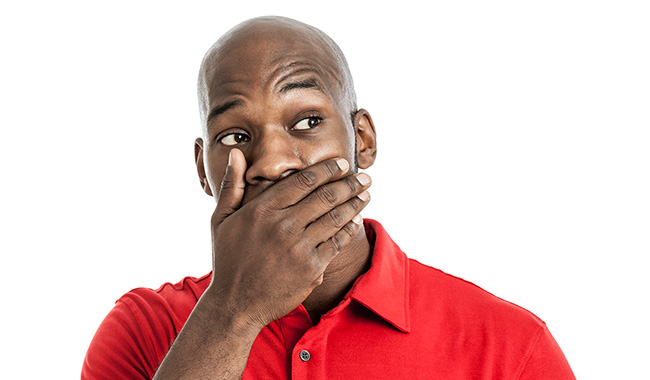By admin
18 Mar, 2017
Dental Health, Dental Hygiene, Dental Tips, General Dentistry, General Health, Lifestyle, Oral Health
cavities, gingivitis, gum disease, plaque, tartar, teeth cleaning
Why do I Need Professional Teeth Cleanings?
Let’s look at five reasons why you should get your teeth regularly cleaned.
1. We check for oral cancer
With cancer, the sooner it’s detected the better chance you have of successfully getting rid of it. Oral cancer is no different. During each teeth cleaning, we check for any signs of oral cancer.
2. Cleanings help prevent cavities
Brushing and flossing every day will do wonders in maintaining a healthy mouth. But, sometimes you may forget to floss, or maybe you had a few too many sodas and candy bars. Our dental hygienists will ensure that your mouth is free of plaque, and can also give you tips for your at-home cleaning if they see something you may not be doing.
3. Cleanings help prevent gum disease
Gum disease can easily creep up on anyone. It is often painless until it becomes a bigger problem. When diagnosed with gingivitis, it can still be reversed with proper gum maintenance.
Once gingivitis progresses to periodontal disease, it requires ongoing professional care to prevent further damage to your mouth. Professional cleanings at twice a year drastically reduce the risk of gum disease ever starting.
4. Having a healthy mouth contributes to a healthy life
Poor oral health has been connected with diagnoses for diabetes, heart disease and pregnancy complications. Keeping your gums and teeth healthy will help prevent the occurrence of these diseases.
5. Regular cleanings are cheaper than taking care of oral problems
Receiving two professional cleanings a year may be an expense you don’t like to see. However, teeth cleanings are much cheaper than other procedures, such as root canals, scaling and root planing, and dental implants.
There is nothing better than a freshly cleaned mouth! Our dental hygienists will make sure you have pain free experience, and you can leave knowing you’ve taken a giant leap forward in maintaining a healthy smile.
If you have more questions about our professional teeth cleanings, or if you’d like to schedule an appointment, please call your Lancaster dentist at (661) 952-7865.
More
Imagine you are eating a big, juicy steak cooked to perfection. You cut out a chunk of steak place it in your mouth. The first bite is delicious, and the second bite is even better.
But then, in your fervor for chewing, you forget where the steak ends and where your cheek begins. Before you know it–chomp!–a bite that was intended for that tasty piece of steak caught your cheek. It’s painful and irritating, but you can get past the pain.
The next day, your wound is healing well, but unfortunately during lunch you bite down on it again. Now it’s official: you have a full blown canker sore. While not all canker sores are self-inflicted, it’s good to know what causes canker sores and some remedies you can implement to promote healing while reducing pain.
For the most part, canker sores are more of a nuisance than a health issue. They can appear on the inside of your lips, cheeks and on your tongue. They can either be caused by trauma (like biting on the inside of your cheek or braces irritating your mouth) or other factors like stress and the types of food you eat.
Avoid agitating your canker sore
- Try not to hit it with your toothbrush.
- Steer clear of foods that will annoy your canker sore, including crunchy, dry, or acidic foods–especially citrus!
- If you have braces, apply wax where the canker sore comes in contact with them. If your braces or dentures continue to cause discomfort and canker sores, your dentist may be able to make the proper adjustments to fix the issue.
Since most canker sores go away on their own, the best thing you can do is manage the pain
- Gargle with salt water. Mix about ¼ to ½ teaspoons of salt with eight ounces of warm water. Put about two to three ounces of water into your mouth at a time and swish it around for 20-30 seconds, then spit it out. Continue to do this until all of the water is gone.
- Consider using a local numbing agent. Products like Oragel can be applied to the canker sore and numb it for temporary relief. These types of products contain benzocaine, so please read all cautions before applying.
- Take over-the-counter pain relief medication, like ibuprofen.
If your canker sore doesn’t heal within a few weeks, it’s time to see a dentist. If your canker sore makes it too painful to eat or drink, consider seeing your dentist before the three week mark. Make an appointment with your local Lancaster dentist if you think you may need additional canker sore treatment.
More

There is nothing worse than feeling the pain of a toothache creep into your mouth. In honor of National Toothache Day (February 9th), let us delve into toothache symptoms, what it could mean, and some things you can do to help with pain, as well as prevent toothaches from happening.
Symptoms
Since a toothache is a common problem, it comes with a lot of symptoms too. Some of these include:
- Throbbing pain
- Sharp pain
- Pain when pressure is applied
- Pain when exposed to hot or cold temperatures
If any of these symptoms last longer than 1-2 days, it’s time to see your dentist for further examination.
Causes
Unfortunately, it can be hard to pinpoint what’s causing your toothache since so many issues can cause them.
Tooth Decay and cavities are very common. When you eat foods, especially ones that have a lot of sugar, you’re feeding the bacteria in your mouth. As the bacteria eat, they produce acid, which damages tooth enamel. Typically, you won’t feel pain until the acid eats past your enamel and reaches the nerves underneath. If you are to the point where you feel pain, you will most likely need a filling, crown, or root canal (depending on the amount of damage).
How to Prevent Cavities
- Avoid sugary foods. One of the best solutions is to not give the bacteria what they want. Avoiding foods that are sugary or made of simple carbohydrates will give them less fuel to create the acid that damages your teeth.
- Use products that have fluoride. Most toothpastes already contain fluoride, and you can top off your dental hygiene routine by rinsing with a fluoride mouthwash. Fluoride can even help rebuild lost enamel caused by tooth decay.
- Brush and floss daily. This prevents plaque from turning into tartar, which causes tooth decay and gum disease (gingivitis). Additionally, visit your dentist to keep up with your routine teeth cleanings.
Bruxism/Teeth Grinding:
Bruxism (clenching or grinding your teeth) can damage your teeth. You might be experiencing bruxism if you have sore teeth; a sore or swollen jaw; significant tooth wear; or find yourself clenching your teeth without having been aware of doing so. If you have these symptoms, there a few things you can to do help prevent this from continuing.
- Get fitted with a night guard. Your dentist can diagnose that you grind your teeth while you sleep, and prescribe the proper type of mouth protection to prevent pain and damage to your teeth.
- Adjust your bite. Your bite may be causing only certain teeth to touch, putting more strain on those particular spots. Further examination by your dentist will determine what actions need to be taken from there.
- Relax! Stress can play a huge factor in clenching your teeth. See our previous blog post for more information on this subject.
Cracked tooth or missing filling:
Cracked teeth—or a lost filling or crown—can expose the inner tooth pulp to irritation by food and hot or cold temperatures. If left untreated for too long, cracks can grow, creating a split tooth and making a fix unlikely. To avoid cracked teeth, follow these tips:
- Don’t chew on hard foods, like ice cubes, hard candies, or other objects like pens or jewelry.
- Wear mouth protection when playing physical sports.
If you notice a crack or missing hardware, set up a time to visit your doctor as soon as possible to prevent any further damage. Until you can see your dentist, there are few things you can do to help with the pain. One option is to take over-the-counter anti-inflammatory medicines like ibuprofen or acetaminophen. (Always read the directions to ensure you are able to take it!) You can also put clove oil on a cotton swab and apply it to the affected area. Apply a cold press if you notice swelling. Remember, these are just temporary solutions to your pain, and you will need to go to your dentist if the pain persists for more than 1-2 days.
More
When you think about myths, chances are your first reaction is to think about the classics—Greek myths with monsters and gods, classic American myths like Paul Bunyan or Rip Van Winkle, or maybe even urban legends. Historically, myths helped our ancestors make sense of the world and explain why they thought and acted the way they did.
But not all myths are ancient. We still create myths today, and they serve the same purpose that ancient myths did. We use them to understand complex topics and to justify our choices—at times for good, and at times not so good reasons.
There are myths about almost any topic if you bother to look—and that includes dentistry. Let’s look at five dental myths, unpack where they come from, and determine if we’d be better off telling these stories to our children or doing away with them altogether.
George Washington had wooden teeth
Right there along with leading the Revolutionary Army, being first president of the USA, and the cherry tree (false!), elementary school students learn about George Washington and his wooden dentures.
It’s true that dental problems plagued Washington. He had his first tooth extracted when he was 24, and by the time he became president in 1789, he only had one tooth left. He wore many dental prostheses during his life—but they were the most advanced dental technology of his time, and were made of ivory, gold, metal, and even human teeth. The “wooden” myth may have arisen because ivory dentures become stained over time.
Verdict: False… but truth can be more disturbing than fiction.
Brush your teeth right after every meal
Let’s look at some basic assumptions about oral hygiene that are true. First, food particles on your teeth can lead to cavities. Second, brushing your teeth removes food particles. The logical conclusion, of course, is that getting the food off your teeth faster must be better.
Well, Mr. Spock, you may be logical—but you’re wrong! Your mouth is already working to protect your teeth—with tooth enamel (the hardest substance in your body) and saliva. The acids in saliva work to break down food—but they also temporarily soften your tooth enamel. Brushing too soon after meals can actually damage your tooth enamel. Give yourself a little break, and wait 30 minutes after meals before you brush.
Verdict: False… but with the best motivation.
Whitening your teeth weakens them
Hmm… bathing your teeth in chemicals, even relatively benign ones, doesn’t sound like a good idea. I mean everyone’s heard the one about the tooth dissolving in a cup of Coca-Cola, right? (Don’t worry, we’re getting to that one next.) Therefore whitening—with trays or even strips—must weaken them, right?
Technically, no. Whitening strips or trays use hydrogen peroxide or carbamide peroxide to remove stains on the teeth through the process of oxidization.
When overused, they can remove 1-2 nanometers of enamel from your teeth, which isn’t great—but then again, a hair is about 80 to 100 thousand nanometers thick, so we’re splitting hairs. Into about 40,000 parts.
Verdict: False… because we think it’s ok to round 0.000025% down to zero.
Leave a tooth in Coke and it’ll dissolve overnight
We can’t do a better job in 100 words than the myth-debunkers extraordinaire at Snopes.com can do in 700, but let’s give it a try. Coke is acidic—but not acidic enough to dissolve a tooth overnight. The acids in coke could eventually dissolve a tooth, but so could the acids in a glass of orange juice. The implication—that we shouldn’t drink Coke because it’s bad for our teeth—is based on a false premise. We drink Coke, not hold it in our mouth for several days at a time. You could argue that most people can do without the hundred plus calories in a serving of soda, but that’s not a myth. It’s a fact.
Verdict: False… but that doesn’t mean it’s not bad for you.
The Tooth Fairy
The idea that a fairy wants to collect children’s teeth so badly it’s willing to pay for them is, on the surface, ridiculous. With more than 7 billion people on the planet… how many teeth can a single fairy—or even a society of tooth fairies—want? But then again, who would believe that a single fat man could traverse the globe in one night, in a sleigh powered by reindeer, delivering gifts to children by climbing down their chimneys? Science can explain most things, perhaps even the lengths people go to please their children, but do we really want to?
Verdict: True… for the children.
More
So You Burnt Your Tongue, What’s Next?
Foods and drinks are a huge part of our daily life. Not only do we need them to live, but meals are a huge part of every culture. Let’s paint a scene for you. You are out with a group of friends at a pizza parlor. The aroma of wood baked pizza fills your nose and makes your stomach gurgle with anticipation. You order your favorite type of pizza and patiently wait for it to come out.
After some time passes, you eye your waiter heading towards your table with your pizza. As he sets it down in front of you, he warns, “Careful, this just came out of the oven.”
Overcome with excitement, you ignore his cautionary advice. You bite down–
The cheese is scalding hot. At this point, you inhale and exhale repeatedly to try and cool the bite of pizza off. You debate if you should spit it out, but you don’t want to be gross in front of your friends. It’s too late. The damage to your tongue is done.
What To Do After You Burn Your Tongue
Now that your favorite pizza parlor has implemented a scorched earth strategy on your tongue, it’s time to find ways to soothe the damage done.
- Just like if you burn another part of your body, applying something cold as soon as possible can help mitigate pain. Sucking on an ice cube will help.
- Put granulated sugar on your tongue and press it on the roof of your mouth. These instructions might seem ironic coming from a dentist, but this trick will help with the pain. But no, this doesn’t give you an excuse to eat a Snickers bar. That’s on you.
- Don’t add inSALT to injury. Seriously, avoid eating hot, salty, acidic, or spicy foods. These foods can irritate your burn, and hot foods can add to the injury as well. Until your tongue heals stick with cold pizza.
- If your tongue still hurts after these remedies, consider taking medications like acetaminophen or ibuprofen. These will help with swelling and pain. If you are unsure if you can take these, make sure you check with your doctor first.
- If your tongue is still in pain after about 7 days, seek medical attention from your local doctor or dentist.
Degrees Of Burns On Your Tongue
While this blog offers solutions to help burnt tongues, if you believe you have a second or third degree burn, please go seek medical attention to ensure you have the best possible care.
First-Degree: Minor damage, tongue may look a little red
Second-Degree: Blisters may form on the tongue and is typically more painful
Third-Degree: White, blackened, or charred tissue, may be numb or have severe pain
Unless your pizzeria uses a blast furnace, thankfully you are unlikely to get a third degree burn on your tongue.
Additional Information about Tongue Burns
- Depending on the severity of your burn, you may have a metallic taste in your mouth. Do not worry; this should go away as your burn heals.
- Taste buds can be burnt off, but will grow back within 10-14 days.
While having a burnt tongue isn’t particularly dangerous, it can be a nuisance for some time. The best way to prevent burns is to be wary around hot items; test nibbles and sips will do you wonders. When the inevitable burnt tongue does happen, use the remedies above to make your time with a burnt tongue a little more bearable.
More





